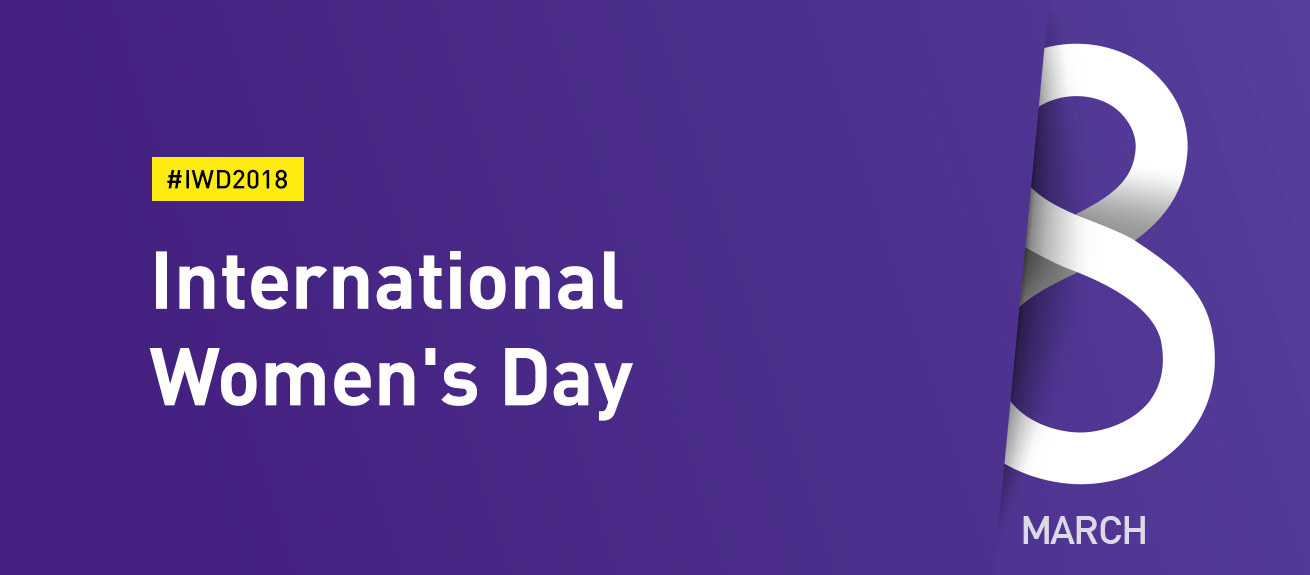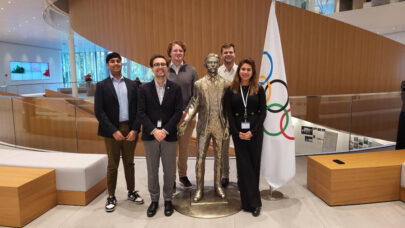
On the occasion of International Women’s Day, members of the IMD Community share their visions of the challenges society faces related to gender, technology and the future of work
“With the dawning of the age of digitization, artificial intelligence and increasing automation, stereotypically feminine traits are increasingly in demand. Occupations that put a premium on emotional intelligence and interpersonal skills such as empathizing, listening and self-regulating, are set to see explosive growth. Higher order critical, creative, and collaborative thinking skills go beyond what machines are capable of.
While that may sound like good news for gender parity, structural barriers to women’s leadership in the workforce, particularly in the STEM fields, are still strongly in place. Technological innovation is still happening in a clearly gendered space. Women are chronically underrepresented in top teams and boardrooms, face blatant wage gaps, secure lower amounts of venture capital funding than male peers, and frequently contend with both subtle and blatant forms of sexual harassment.
The onus is on business leaders to proactively leverage this inflection point by applying a gender lens to strategy. Technical innovation must grow in tandem with the dismantling of barriers to women’s advancement. This is a social innovation that will bring new ideas that work to benefit the broader purposes of both business and society.
“How are women faring in family business? Whilst it may still take a number of years to reach gender equality in family business, gender parity is an area in which family businesses and family offices often score higher than others.
In family business, approximately 15-16% of CEOs are women. That’s around double the percentage of women CEOs in non-family businesses. It is, however, in other C-suite roles that the figures are really striking, with women representing up to 37.5% of COOs and 37.9% of CFOs in Family Offices.
To me though, what truly sets family businesses apart as gender equality role models is the way they provide more flexibility and career options during maternity leave and the first few years with young children. Accommodating time out; enabling reduced working hours and offering longer holiday time to both parents equally. These are just some of the ways in which they are leading by example, fostering the success of both the family unit and the family business for the next generation.”
“From implicit exclusion to explicit inclusion –While bringing many benefits, a purely technological and rational perspective on progress has led our world to a precarious position. One thing is for sure – predicting how things will be in the future are often just that – predictions. Back in the 1980’s, many asked the question – What are we going to do with all the spare time we have when technological advances come into play? As we now know, rather than giving us more free time, what has actually happened is that work has become boundary-less. The onus now falls on both individuals and organizations to create boundaries to keep us healthier and happier at both work and home.
We must strive for more unity in society – and technology for many enables a connection to a larger community – a truly global one. As many local communities and families have become fragmented, organizations have become the space where people spend most of their lives. Increasingly, companies have a collective responsibility to cultivate a spirit of conscious care for all their stakeholders in both the human and non-human world. If we can’t treat our own species with respect, what hope is there for other living organisms? Truly inclusive cultures provide benefits not only to ‘minorities’ but to the majority too.
Rather than being implicit about exclusion, often through unconscious biases, now is the time to become explicit about inclusion. Recent research indicates that organizations with inclusive cultures enjoy greater innovation, creativity and bottom line results. Women comprise 50% of our species – it is an archaic society that minimizes the contributions of half its population. Clearly, the steps taken so far in the past decades within organizations have led to slow progress. Perhaps it is time to change the approach?
So what can we do? It is time to take individual and collective responsibility for both our intent and our impact. We need to be conscious that our cultures are socially-constructed. We need to start having courageous conversations, approached from a collaborative, reflective and joint-learning perspective. And we then need to hold ourselves accountable; What small micro-acts can we each take to make a difference today, tomorrow and beyond?
By taking responsibility for where we are with our organizational and social realities, we can drive compassionate inclusion and be serious about our humanity.”
“We are at an extraordinary, exciting time in history. We have challenges and we have enormous opportunities. Now is the time for society to get serious about shaping the future. What it will be like in 100 years or even beyond?
It doesn’t make any sense today to continue doing things in the same way. Society’s problems are just too big. We need to grasp the challenges and the opportunities that are in front of us and create the world we want. According to the World Economic Forum, it will take 217 years to close the workplace gender gap. We must start tackling this today. In the IMD MBA Program, we are committed to change and to doing as much as we can – right now. I am so inspired by the young people in our program – men and women – who are focused on these issues, and who come from all over the world. Forty three nationalities coming together for a year to apply their minds as to what is the world going to look like, what role are they going to play – is it going to be in business, government, civil society or all of these? They are thinking about impact and the way they want to change the world. Things cannot remain as they currently are – why would the current generation accept what we have, which is to ‘work with one hand behind your back’ – work with half of the talent pool available? We can and must do better.”
“What is the significance of international women’s day to you? International women’s Day is held to celebrate women’s achievements throughout history, as well representing the Day for Women’s rights. These are two beautiful reasons to commemorate the women in your life who have impacted you, and those you continue to look up to. For me personally, it gives me an opportunity to stand still and celebrate progress made for women even in my lifetime. It also gives me reason to remember that we still have a long way to go before we see equality and especially inclusion in society, including academia, organizations and governments.
How can business contribute to progress? I am of the opinion that businesses need to step up and the same goes for academia and governments. This triad ought to align and work as partners to increase the contribution of women in society overall. The time to passively acquiesce is really no longer appropriate. Everyone will benefit from the presence of women in leadership positions: because it will lead to improvements on all fronts; among the benefits are substantial growth in GDPs through higher performance, and enhanced health, wellness, and quality of life for all. Coming back to organizations, their role is to ensure that all their supervisors, managers and leaders are held accountable for change.
What role does new technology play? It is relatively early in the development of AI to understand what role it will play to increase the presence of women in leadership positions. We anticipate that softer skills of leadership will prevail, whereas hard skills might be replaced or greatly assisted by AI. In regards to leadership skills requiring collaboration, external orientation, and inclusion, I see a good environment for female leaders to thrive, as well as all women in organizations. When it comes to the hard part, i.e. information processing and analysis, I am cautiously optimistic that AI may remain gender neutral. However, past process designs would point to the fact that under represented groups’ needs and experience mostly lose out. This means that we need to take extra steps now to ensure that AI takes these differences into account (gender, disability, age, ethnicity, and GLBTQ) for it to be of true value for businesses and society as a whole.”








